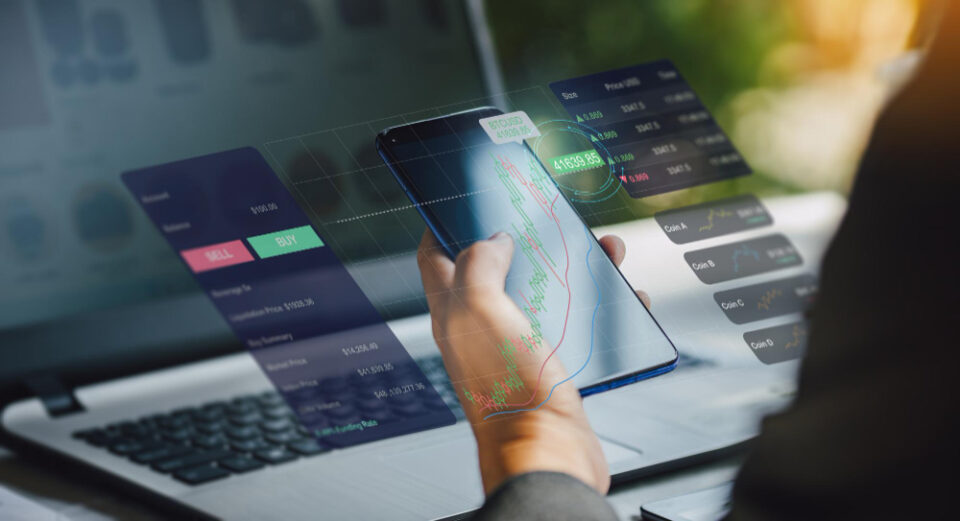In the rapidly evolving digital era, banking apps have become essential tools for individuals and businesses to manage their finances conveniently and securely. These apps offer a wide range of features, from account management to mobile payments, that streamline banking processes and enhance the overall customer experience. In this comprehensive guide, we will explore the development process of banking apps, key features, technologies used, security considerations, future trends, to build banking apps.
Overview of Banking App Development
Banking mobile app development involves creating mobile applications that allow users to perform various banking activities on their smartphones or tablets. These apps provide a secure and convenient way for users to manage their accounts, make payments, transfer funds, and access other banking services.
Importance of Banking Apps in the Digital Era
The rise of smartphones and mobile technology has transformed the way people interact with banks. Banking apps have become an integral part of everyday life, offering users instant access to their finances anytime, anywhere. They have also helped banks reduce costs and improve efficiency by encouraging self-service and reducing the need for physical branches.
Table of Contents
Steps to Develop a Banking App
Market Research and Analysis
Before starting the development process, it’s crucial to conduct thorough market research to understand the needs and preferences of your target audience. Analyze the competition and identify key trends in the banking app market.
Designing the User Interface
The UI/UX plays a crucial role in the success of a banking app. Design a clean, intuitive interface that is easy to navigate and visually appealing. Consider the use of colors, typography, and icons to enhance the user experience.
Development Process
The development process involves coding the app using programming languages such as Java, Swift, or Kotlin. Ensure that the app is optimized for performance and compatibility with various devices and operating systems.
Testing and Deployment
Once the app is developed, it needs to undergo rigorous testing to ensure that it functions correctly and is free of bugs and errors. After testing, the app can be deployed to app stores for users to download and install.
Related Read: Latest Digital Payment Trends in 2024
Key Features of Banking Apps
Account Management
Banking apps allow users to view their account balances, transaction history, and account statements. Users can also manage their accounts, such as transferring funds between accounts and setting up recurring payments.
Mobile Payments
One of the key features of banking apps is the ability to make mobile payments. Users can pay bills, make purchases, and transfer money to other individuals or businesses using their smartphones.
Security Features
To ensure the security of users’ financial information, banking apps use encryption techniques and secure authentication methods. They also comply with regulations such as GDPR and PCI DSS to protect users’ data.
Customer Support
Banking apps often include customer support features, such as live chat or chatbots, to help users with any issues or questions they may have while using the app.
Must Read: A Technical Guide to Portfolio Management App Development
Technologies Used to Develop Banking Apps
Mobile App Development Frameworks
Popular frameworks for developing banking apps include React Native, Flutter, and Xamarin, which allow developers to create cross-platform apps that work on both iOS and Android devices.
Security Protocols
Banking apps use security protocols such as HTTPS, SSL/TLS, and OAuth to protect users’ data from unauthorized access and ensure secure communication between the app and the server.
API Integration
Banking apps integrate with various APIs, such as payment gateways and third-party services, to provide additional features and functionality to users.
Also Read: How to Develop a Mobile Banking App Like Bank of America
Security Considerations
Encryption Techniques
Banking apps use encryption techniques such as AES (Advanced Encryption Standard) to encrypt sensitive data, such as account numbers and passwords, to protect it from being intercepted by hackers.
Authentication Methods
To ensure that only authorized users can access the app, banking apps use strong authentication methods, such as biometric authentication (e.g., fingerprint or facial recognition) and two-factor authentication (2FA).
Compliance with Regulations
Banking apps must comply with regulations such as GDPR (General Data Protection Regulation) and PCI DSS (Payment Card Industry Data Security Standard) to protect users’ data and ensure secure transactions.
Future Trends in Banking App Development
AI and Machine Learning
AI and machine learning are being increasingly used in banking apps to provide personalized recommendations, detect fraud, and improve customer service.
Blockchain Technology
Blockchain technology is being explored for its potential to enhance security and transparency in banking transactions, such as reducing the risk of fraud and improving the speed of transactions.
Personalization and Customer Experience
Personalization is key to providing a seamless and personalized banking experience. Banks are using data analytics to understand user behavior and offer tailored products and services.
Also Check: A Complete Guide to Neobanking App Development
How Quytech can Help You to Build Banking Apps
Quytech is a leading fintech app development company with expertise in developing banking apps. With a team of experienced developers and designers, Quytech can help you build secure, user-friendly banking apps that meet the needs of your customers.
Conclusion
Banking apps have revolutionized the way people manage their finances, offering convenience, security, and a personalized experience. By following the steps outlined in this guide and leveraging the latest technologies trends, you can develop a successful banking app that meets the needs of your customers and helps your business thrive in the digital era.
Development Partners: Top Fintech App Development Companies in 2024

